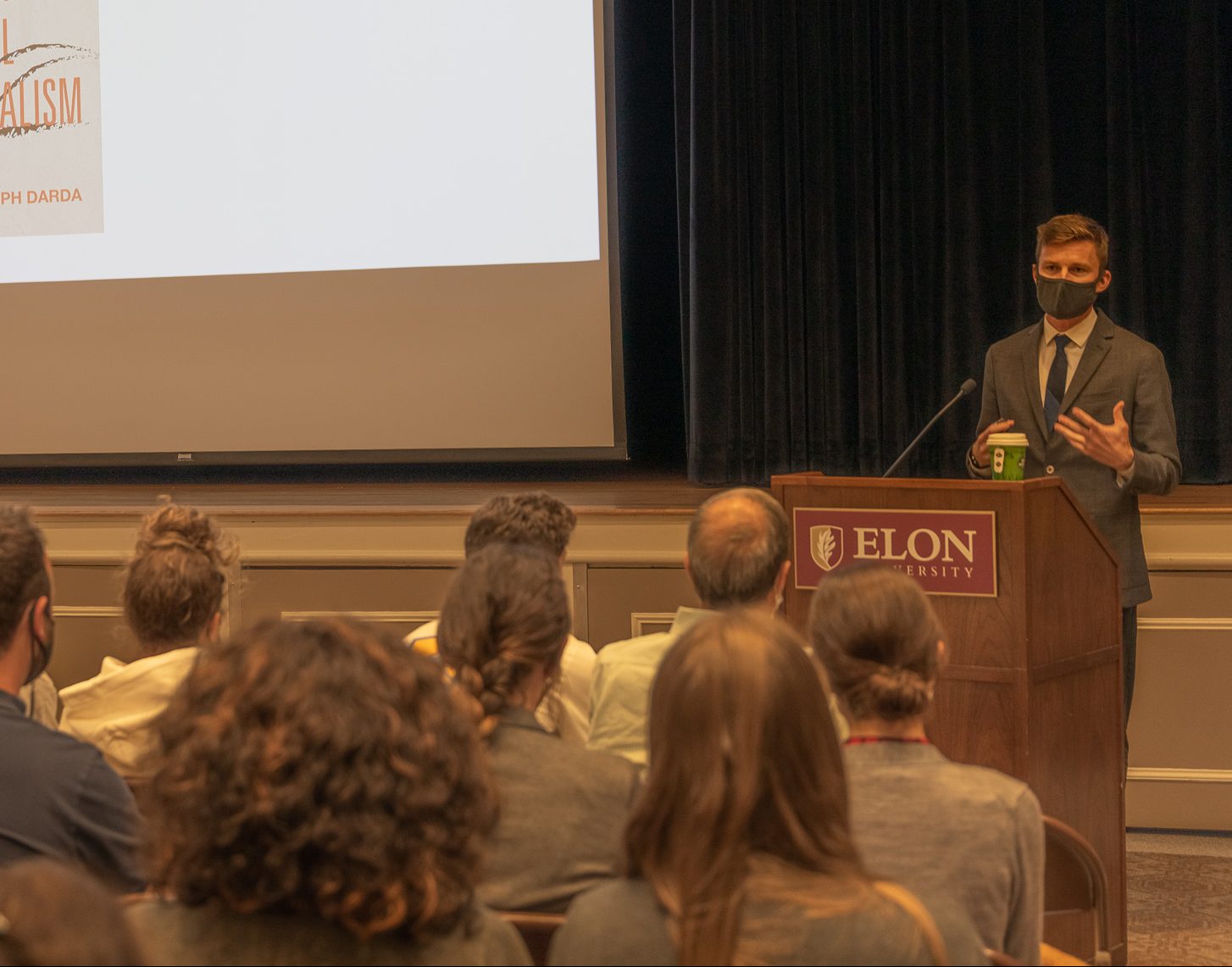Darda's talk with the Department of English was based on his upcoming book “The Strange Career of Racial Liberalism.”
Joseph Darda, associate professor of English at Texas Christian University, spoke to Elon University on Sept. 30 on the topic of antiracism in education.
“Racial liberalism faced what often felt like a terminal crisis in the 2010s, and it offered itself as the solution,” Darda said during his talk titled “Antiracism as Education: How Americans Learned to Read for Racial Change” in McKinnon Hall. “Crises elevate our desire for solutions. But what if it is our desire for solutions that creates the crises?”
The event was organized by Dinidu Karunanayake, an assistant professor in the Department of English as a part of the department’s ongoing diversity, equity and inclusivity initiatives. The audience of the well-attended talk included students, their family members and faculty.
“The content of antiracist literature might not matter as much as the framing. The content might be radical. It might call for revolution,” Darda added. “But the liberal channels through which it circulates tend to soften the edges, redirecting us to reading, reform, and the dream of a better tomorrow.”
Critically reflecting on the arc of antiracist literary culture in the United States, from early “race novels” such as Harriet Beecher Stowe’s “Uncle Tom’s Cabin” (1852) and Richard Wright’s “Native Son” (1940) to present-day bestsellers like Robin DiAngelo’s “White Fragility” (2018) and Ibram Kendi’s “How to Be an Antiracist” (2019), Darda highlighted pitfalls in “antiracist” reading practices.
He built on James Baldwin’s critique of “racial awakening” as a time-centric linear trajectory — “As long as [antiracist books] are being published, everything will be all right” — and asserted the need to reevaluate how we situate, consume, teach and advance antiracism as education.

During his time at Elon, Darda took part in additional events. On Oct. 1, he had breakfast with a group of students enrolled in the course “Postcolonial Asian Literature and Globalization,” taught by Karunanayake. He then visited the class and engaged the students in a conversation about “permanent war” — a concept that he theorizes in his book “Empire of Defense.” Later that day, he hosted an informal conversation with English Department faculty about teaching DEI-centric topics as a White faculty member at a predominantly White institution.

“It is very rare that students are able to speak so openly with an expert in this field, and [Darda’s visit] was so insightful,” said student Matisse Gilmore, who double majors in international and global studies and journalism, and minors in political science.
Lucas Leveillee and Stewart Mitchell, who are both English majors, echoed her views. “Open and critical discussions on race, politics, policing and socioeconomic issues are beneficial to students’ understanding of these topics as they relate to literature,” Stewart added.
Darda’s visit to Elon was co-sponsored by the Global Neighborhood, the Center for the Advancement of Teaching and Learning, African and African-American Studies, the Office of the Provost, the Center for Race, Ethnicity, & Diversity Education, American Studies, Peace and Conflict Studies, Poverty and Social Justice and the Isabella Cannon Global Education Center.
You can watch the recording of the talk “Antiracism as Education: How Americans Learned to Read for Racial Change” here.



